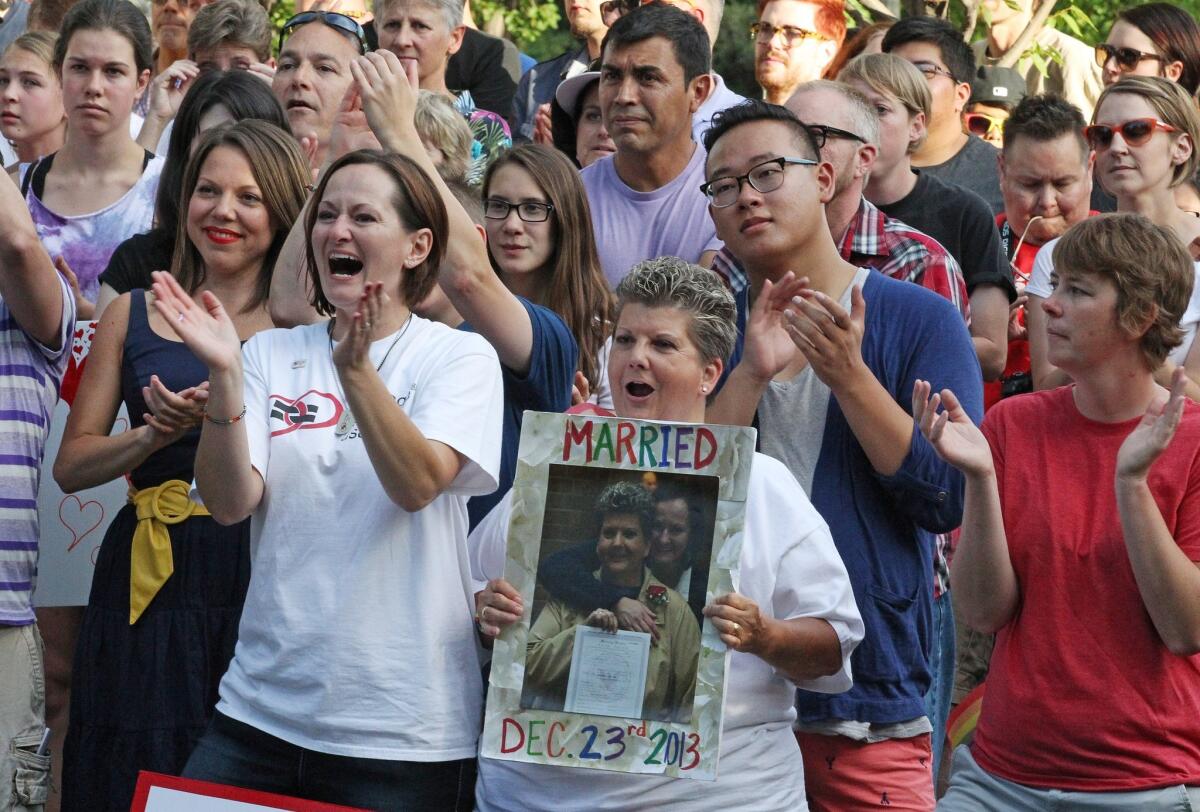Ten states join Indiana appeal of rulings allowing same-sex marriage

Ten states have filed an amicus brief in support of Indiana’s challenge of a lower court ruling claiming bans on same-sex marriage are unconstitutional, arguing that states, not federal courts, have legal authority to define marriage, according to court filings.
Attorneys general in Alaska, Alabama, Arizona, Oklahoma, South Carolina, South Dakota, Idaho, Utah and Louisiana were all listed in the July 21 filing in Colorado in support of the Indiana attorney general’s office, which filed an appeal in federal court earlier this month after a lower court found the state’s ban unconstitutional.
“Regardless of someone’s personal beliefs regarding whether same-sex marriage should be permitted as a matter of policy, doing so is not the role of the judicial branch,” the recent filing from Colorado’s Solicitor General states.
On Wednesday, a federal judge ruled Colorado’s gay-marriage ban unconstitutional, but an appeals process is pending.
Utah, Oklahoma, Idaho, Colorado and Indiana have all seen courts rule their bans on same-sex marriage unconstitutional. Bans remain intact in the other six states that have joined the brief, but each faces a court challenge.
Same-sex marriage is completely legal, and not subject to a pending appeals process, in 18 states, largely throughout the Northeast.
In the brief, the states rely heavily on U.S. vs. Windsor, the landmark Supreme Court case that ruled limiting the definition of marriage to heterosexual couples was unconstitutional. But the states now argue that the Windsor case did not define same-sex marriage as a fundamental right and actually reaffirmed the states’ power to define marriage.
The Indiana attorney general’s office said it was grateful for the help. Spokesman Bryan Corbin said, “This office appreciates the amicus support of other states who help underscore the legal argument that Indiana has the authority to statutorily regulate marriage within its borders.”
Battles over same-sex marriage have been waged throughout the country in recent months, with several state bans being challenged and ultimately ruled unconstitutional. Beyond Wednesday’s ruling in Colorado, a judge in Florida found that state’s ban unconstitutional last week in a ruling that affected only the Florida Keys.
Evan Wilson, founder and president of the same-sex marriage advocacy group Freedom To Marry, told the Los Angeles Times that the states’ argument is flawed because the constitutional right to marry trumps states’ power to regulate marriage licenses.
“While it is true that states in the first instance regulate marriage and issue marriage licenses, they do so subject to the U.S. Constitution. There is a constitutional floor below which the states may not go,” Wilson said.
Follow @JamesQueallyLAT for breaking news
More to Read
Sign up for Essential California
The most important California stories and recommendations in your inbox every morning.
You may occasionally receive promotional content from the Los Angeles Times.











